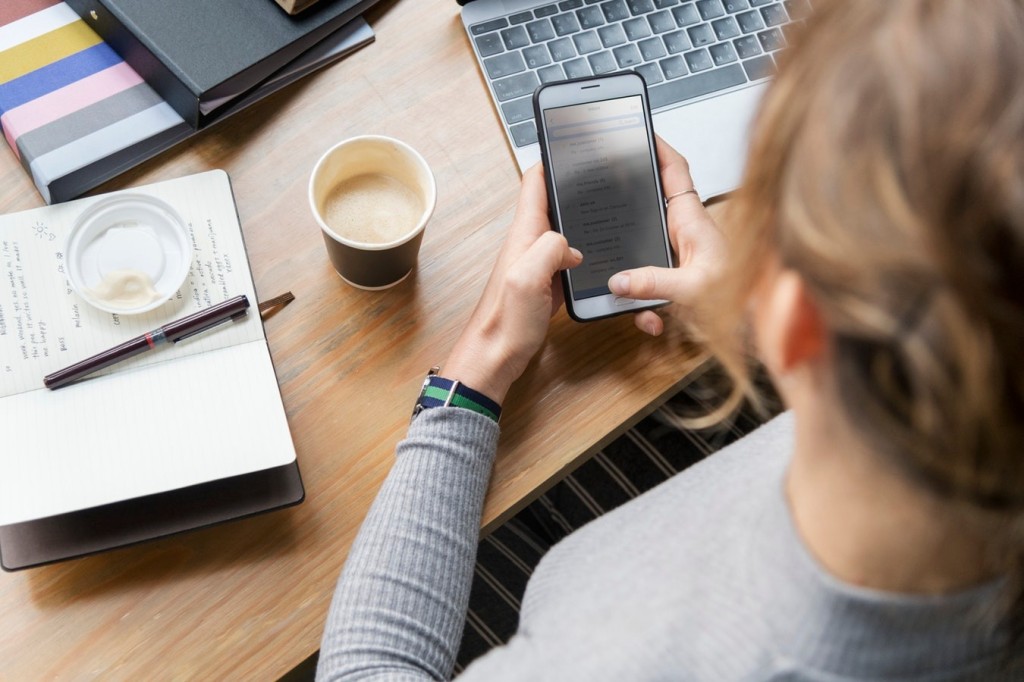How to Manage The Ultimate Productivity Killer: The Smartphone
Back in the times of yore – i.e., the mid-1990s, before cellphones were ubiquitous – I worked for my father at his construction company.
My dad used to have to have to call his subcontractors and the lumber yard throughout the day. But most of the new houses we built were in the woods, with no phone. Which meant he had to drive to a gas station and use a payphone to speak to them.
Crazy, right? What a time suck.
Now, of course, my dad can just call people on his cellphone whenever. Heck, clients can take a picture of whatever is broken on their phone and send it to my dad, and he can diagnosis the problem without leaving his living room.
The point? Smart phones have made things much more productive.
And yet, it doesn’t always feel that way. The constant connectiveness to colleagues, friends and the world has taken a tool that has the potential to make us so much more productive – and made us much less productive, at times.
Have no fear, Time Management Expert Dave Crenshaw is here to help. In his LinkedIn Learning course Time Management Tips Weekly, Crenshaw explains how to ensure your smartphone is working for you, instead of against you.
“While our phone may give us the feeling of being productive, all too often, rather than being our servant, the phone has become the master of our day,” Crenshaw said.
Crenshaw’s Rules for Getting the Most Out of Your Smartphone
LinkedIn Learning Instructor Dave Crenshaw explains how to set good boundaries with your smartphone.
Crenshaw said getting the most out of your smartphone begins and ends with setting boundaries with it. Otherwise, like a weed, it can overtake your time.
Here are his suggestions for doing that:
1. Turn off notifications whenever possible.
Every app wants to send you notifications because they know, if you have them on, you are much more likely to use that particular app more often. Which is exactly what you are trying to avoid – using a bunch of apps around their schedule, not yours.
So, be vigilant with turning off notifications, unless absolutely necessary. You likely don’t need breaking news updates from three different news apps. You likely don’t need a notification every time someone likes your Instagram post. You likely don’t need notifications from that addicting game on your phone.
The more you shut these off, the less you'll be distracted and the more control you’ll have over your day.
2. Yes, even email notifications.
Here’s where the rubber meets the road. You should also shut off email notifications.
Think about it – many of us let email run our day. Emails come in, we drop everything and respond. That’s allowing other people to set our to-do list, instead of we ourselves truly managing our time.
Two big caveats here. First off, this doesn’t mean you don’t check email. It’s that you check email on your time, instead of checking it on the sender’s time.
Second, I know what you are thinking – but what if there is an emergency? First off, 99 percent of the emails you get aren’t emergencies and you’ll actually have better responses to them if you respond in your time, instead of responding immediately.
But, if there really is an emergency, let people know to contact you another way. Perhaps a text message or a phone call. That way, you still are available in emergencies, but not being constantly distracted throughout the day by each new email that comes in.
3. Be strategic with the apps you download.
Some people have an app for everything. But more apps isn’t always the answer, and often an app that allegedly makes you more productive can make you less productive.
“Many people have what I call app addiction, the idea that installing one new program on your smartphone will magically make you more productive,” Crenshaw said. “That's just not the case. Productivity comes from living true principles. Filling up your phone with a variety of random apps creates confusion and clutter.”
4. Airplane mode is your friend.
Alright, this one isn’t from Crenshaw, but one I found helpful.
Sometimes, it’s good to unplug. So, either put your phone on airplane mode or just put it in another room when you really need to focus.
For example, I put my phone in airplane mode when I write articles like this. I do it every time I go to sleep. I do it before big meetings, when I want to stay focused.
I know some of you can’t do that as you need to stay on call and technically nobody can reach you in an emergency. Although I'll say this: I’ve done it consistently throughout the past two years and I’ve never missed an emergency. Somehow, the world continues to spin, even if I take an hour to unplug.
That’s just my own personal hack. Bigger point? You should experiment and see what works best for you.
The most important thing is, as Crenshaw said, you remain the master and the phone remains the servant. Not the other way around.
Time management is one of the skills companies need most in 2019. Improve your time management skills today with one of these LinkedIn Learning courses:
Topics: Productivity tips
Related articles




